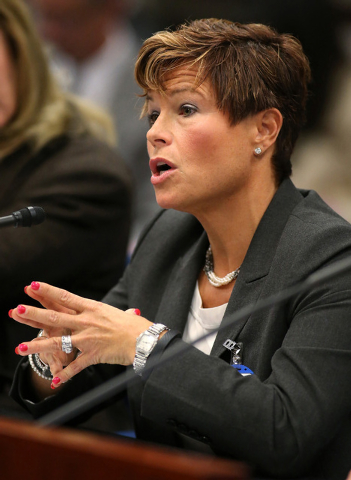Senate bill would allow physician assistants to order commitments

CARSON CITY — A bill that would expand the types of health professionals who can initiate involuntary commitments and identify those deemed not a danger and eligible for release would help alleviate overcrowding at hospital emergency rooms, according to a state health official.
Senate Bill 7 was considered Wednesday by the Senate Committee on Health and Human Services. It would add physician assistants to those who can file an application to have someone committed for mental illness, a process known as a Legal 2000.
Dr. Tracey Green, state medical officer, said hospital emergency rooms in the past decade have been overwhelmed with people on mental health holds, at times forcing other patients to go elsewhere. The problem has been particularly acute in Clark County.
“The emergency room numbers have improved due mainly because of increased beds,” Green said. “But legal holds are still an issue.”
The measure would also authorize physician assistants, social workers, psychologists and registered nurses to “decertify” someone as having a mental illness, though a doctor at the facility would still need to release the patient.
Health officials say most people held for mental evaluations do not have a mental illness or pose a danger to themselves or others.
But others urged caution as the bill proceeds. They suggested the measure include language specifying that those involved in the decertification process have experience in mental health.
No action was taken by the committee and amendments were anticipated.
Contact Sandra Chereb at schereb@reviewjournal.com or 775-687-3901. Find her on Twitter: @SandraChereb.












